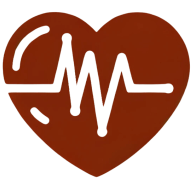Welcome to a comprehensive exploration of the latest breakthroughs in cardiology research. This blog post will delve into the most recent advancements and findings in the field, providing an in-depth understanding of their implications for both medical professionals and patients. We will navigate through the complexities of cardiology, shedding light on the potential these developments hold for the future of heart health.
The Emergence of Personalized Medicine in Cardiology
Personalized medicine is revolutionizing cardiology, offering tailored treatments based on an individual's genetic makeup. This approach is transforming the way we understand, diagnose, and treat heart diseases.
Researchers are now able to identify genetic variants associated with heart diseases, enabling them to predict an individual's risk and develop personalized prevention strategies. This shift towards a more personalized approach is not only improving patient outcomes but also reducing the cost of healthcare by preventing the onset of diseases.
Moreover, the integration of artificial intelligence (AI) into personalized medicine is further enhancing its potential. AI algorithms can analyze vast amounts of genetic data, identifying patterns and associations that would be impossible for humans to detect. This is accelerating the pace of research and paving the way for more precise and effective treatments.
Advances in Cardiac Imaging Techniques
Cardiac imaging techniques have seen significant advancements, providing more detailed and accurate information about the heart's structure and function. These improvements are enabling doctors to diagnose heart conditions with greater precision and speed.
One of the most promising developments is the advent of 3D echocardiography. This technique provides a three-dimensional view of the heart, allowing doctors to examine its structure in detail. This is particularly useful for diagnosing complex heart conditions and planning surgeries.
Additionally, the use of magnetic resonance imaging (MRI) in cardiology has increased. Cardiac MRI provides detailed images of the heart and blood vessels, helping doctors to identify abnormalities and assess the severity of heart diseases.
Innovations in Cardiac Surgery
Cardiac surgery has undergone significant innovations, improving patient outcomes and reducing recovery times. Minimally invasive procedures are becoming more common, reducing the risk of complications and speeding up recovery.
One such innovation is transcatheter aortic valve replacement (TAVR). This procedure involves replacing the aortic valve without open-heart surgery. Instead, doctors insert a new valve through a small incision in the chest or a catheter in the groin. This approach is less invasive and has a shorter recovery time than traditional surgery.
Another promising development is the use of robotic-assisted surgery. This technology allows surgeons to perform complex procedures with greater precision and control, reducing the risk of complications.
The Role of Stem Cells in Cardiology
Stem cell therapy is emerging as a promising treatment for heart diseases. Stem cells have the potential to regenerate damaged heart tissue, offering hope for patients with heart failure or those who have suffered a heart attack.
Research is ongoing to determine the best types of stem cells to use, how to deliver them to the heart, and how to ensure they repair the damaged tissue. Despite these challenges, the potential of stem cell therapy is undeniable, and it could revolutionize the treatment of heart diseases.
The Impact of Lifestyle Factors on Heart Health
Recent research has highlighted the significant impact of lifestyle factors on heart health. Factors such as diet, exercise, and stress can significantly influence the risk of developing heart diseases.
Studies have shown that a diet rich in fruits, vegetables, whole grains, and lean proteins can reduce the risk of heart disease. Regular exercise has also been proven to improve heart health, while stress management techniques can help to lower blood pressure and reduce the risk of heart disease.
The Future of Cardiology
The future of cardiology is bright, with ongoing research promising to deliver even more innovative treatments and technologies. From the development of new drugs to the use of AI in diagnosis and treatment, the field is constantly evolving.
The integration of technology into cardiology is set to continue, with wearable devices and telemedicine playing an increasingly important role. These technologies will enable doctors to monitor patients remotely, providing real-time data on heart health and allowing for early intervention in the event of a problem.
Unraveling the Future of Heart Health
The field of cardiology is witnessing an era of rapid advancements, with research providing new insights into the prevention, diagnosis, and treatment of heart diseases. As we continue to explore the complexities of the heart, the future holds the promise of even more innovative solutions to improve heart health. Stay tuned to this space as we continue to bring you the latest breakthroughs in cardiology research.

